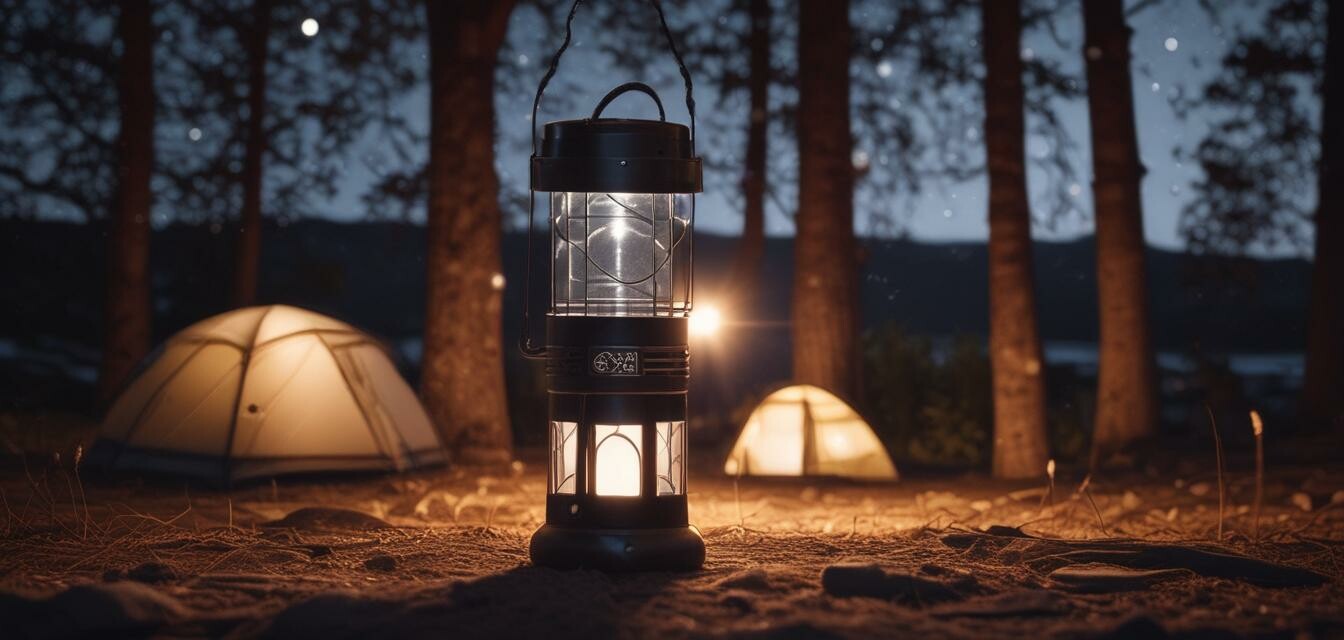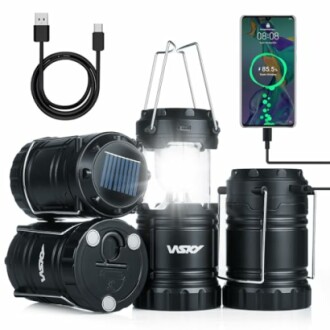
How to Select the Right Solar Lantern for Camping
- Consider brightness levels for different camping needs.
- Evaluate battery life for prolonged usage.
- Look for portability and design that fits your style.
- Choose features that enhance functionality, like recharging options.
- Understand the materials and durability for various weather conditions.
Choosing the right solar lantern can significantly enhance your camping experience. With various options available in terms of brightness, battery life, design, and additional features, it’s essential to know what to look for. In this guide, we will explore key factors to consider when selecting a solar lantern for your outdoor adventures.
Why Use Solar Lanterns for Camping?
Solar lanterns provide an eco-friendly lighting solution for campers. They harness solar energy, reducing the need for batteries or traditional fuel, while providing bright, reliable light. Here are some reasons why solar lanterns are a great camping companion:
- Environmentally friendly power source.
- Cost-effective solution with no fuel costs.
- Convenient charging during the day.
- Lightweight and portable designs.
Key Features to Consider
1. Brightness
Brightness is measured in lumens. Choose a lantern with:
- 50-100 lumens: Suitable for close-range tasks (e.g., reading).
- 100-300 lumens: Ideal for illuminating tents and campsites.
- 300+ lumens: Best for larger outdoor spaces and activities like cooking.
2. Battery Life
Battery life determines how long your lantern will operate before needing a recharge. Look for lanterns that offer:
| Battery Type | Average Runtime | Recharging Time |
|---|---|---|
| Solar Only | Up to 12 hours | 8-10 hours of sunlight |
| USB Rechargeable | 10-20 hours | 3-5 hours |
| Dual Power (Solar + Battery) | 12 hours (battery) + unlimited (solar) | Varies |
3. Design and Portability
The design should match your camping style. Consider:
- Weight: Lightweight models are easier to transport.
- Size: Compact lanterns can fit easily in your backpack.
- Shape: Look for collapsible or multifunctional designs for more versatility.
4. Additional Features
Some solar lanterns come with extra features, enhancing functionality:
- Power Bank Capability: Charge personal devices.
- Multiple Lighting Modes: Adjust brightness as needed.
- Water Resistance: Essential for outdoor use in diverse weather.
Popular Solar Lanterns to Consider
Here are some top choices to check out:
Xynover Solar Camping Lantern 4-Pack
This rechargeable LED lantern provides up to 12 hours of illumination with its three power supply options: solar, USB, and battery.
Learn MoreBigBlue 3 USB Ports 28W Solar Charger
Lightweight and portable, this solar charger is compatible with most smartphones and electronics, making it a perfect addition for power supply.
Learn MoreConclusion
In conclusion, selecting the right solar lantern for camping involves considering several factors, including brightness, battery life, design, and additional features. By carefully assessing your camping needs and preferences, you can choose a solar lantern that enhances your outdoor experience and makes night-time activities enjoyable. Don't forget to check out our detailed guide on setting up solar-powered shelters and the latest types of solar-powered camping shelters to maximize your adventures.
Tips for Effective Lantern Use
- Always charge your lantern fully before your trip.
- Position your lantern in direct sunlight during the day.
- Keep your lantern clean to ensure maximum light output.
- Use the lowest brightness setting when you don’t need excessive light to conserve battery.
Related Articles
- How to Choose a Solar-Powered Shelter
- Latest Trends in Camping Gear
- Maintenance of Solar-Powered Shelters
- Must-Have Solar Camping Accessories
- Benefits of Solar-Powered Shelters

